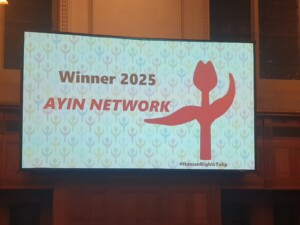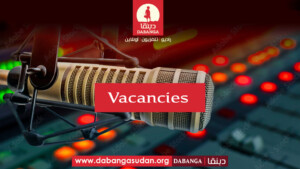Sudan journalists, lawyers unite against Press Act amendments
The pace of rejection of proposed amendments to the Press Act of 2009 has escalated at a seminar organised by the Sudanese Journalists Network at the headquarters of El Jareeda newspaper in Khartoum, as journalists and legal rights activists called for unification of efforts to counter the amendments.
The pace of rejection of proposed amendments to the Press Act of 2009 has escalated at a seminar organised by the Sudanese Journalists Network at the headquarters of El Jareeda newspaper in Khartoum, as journalists and legal rights activists called for unification of efforts to counter the amendments.
The representative of the Democratic Coalition of Lawyers, Saati El Haj confirmed the lawyers’ support for the journalists, saying that “there is no legal justification for the confiscation of newspapers”.
Human rights activist, Mohamed Ali Khojaly, said that the battle of the Press Act is a priority, while the editor of El Tayyar newspaper, Osman Mirghani, called for transition from defence to a stage of attack.
Feisal Mohamed Saleh, the media expert and director of Teiba Press Centre who won the Peter Mahler Award for Courage and Integrity, has reiterated his categorical rejection of the amendments to the Press and Publications Act of 2017.
He stressed that the current political, legal, and legislative atmosphere can only produce laws dedicated to further restrictions on the press.
In an interview with Radio Dabanga on the Sudanese files, Saleh called for adherence to 2009 Act, despite its weakness and violation of international standards.
He added that it was approved in a better political atmosphere following the Comprehensive Peace Agreement and pointed out that the current Parliament represents only one party. Sale condemned the amendments to the Press Act six times during the 16 years of the current government, “which has caused loss of its value”.
Press restrictions
He said that the repeated amendments to the Press Act came in response to the desire of the executive authority and the security services to further restrict the press.
Saleh described the proposed amendments that included electronic newspapers under the umbrella of censorship as “distorted, generalised, non-practical and including all social media”.
He predicted that the current Act will lead to the blocking of a number of websites inside Sudan.
He said the amendments of the Press Act in conjunction with the draft Voluntary Work Act is an attempt to silence the press and civil society in preparation for the elections in 2020.
He pointed to the emergence of a trend to amend the constitution before the elections so as to grant President Al Bashir a third presidential term.
He stressed that there is a broad scope of rejecting the amendments to the Press Act among the press base and the political parties.
He considered the returning of the draft Act to the Cabinet for more consultation as a positive sign.











 and then
and then